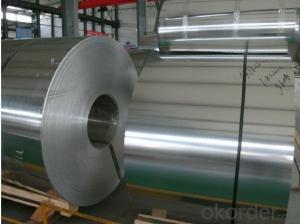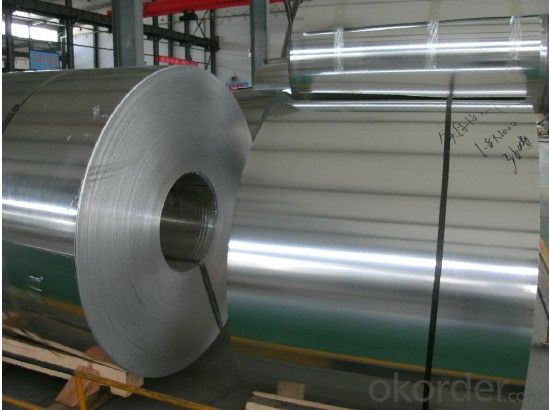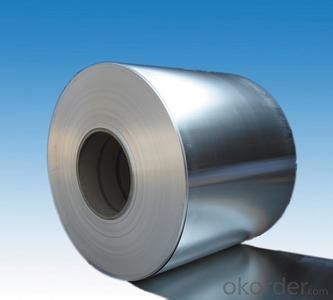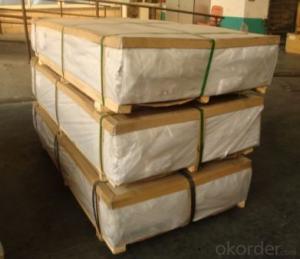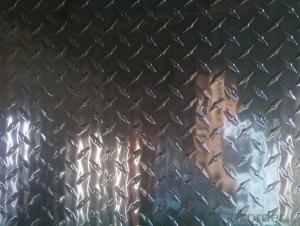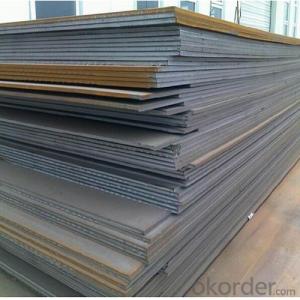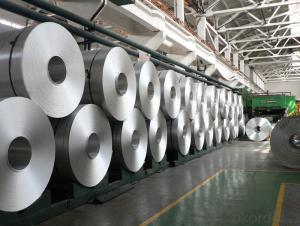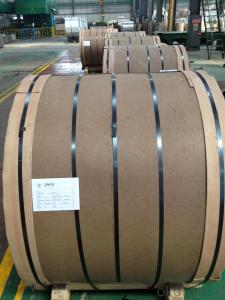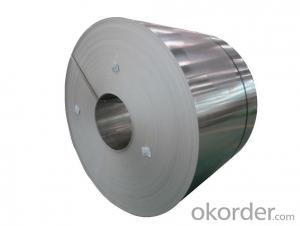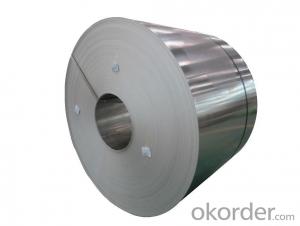Light Gauge Aluminum Sheets for Cookware - Continuous Casting Aluminum Coils Oklahoma
- Loading Port:
- Shanghai
- Payment Terms:
- TT OR LC
- Min Order Qty:
- 5 m.t.
- Supply Capability:
- 50000 m.t./month
OKorder Service Pledge
OKorder Financial Service
You Might Also Like
Specification
1.Structure of Continuous Casting Aluminium Coils for Cookware
Continuous Casting Aluminium Coils for Cookware is one semi-finished aluminium material. This strip can be rolled down to aluminium coil,sheet,circle ect. The alloy AA1050 is widly used in building, industry ect. Its weight is much lower than steel. So many customers choosed aluminium material instead of steel.
2. Main features of Continuous Casting Aluminium Coils for Cookware
a.Competitive price---We have our own mills and can produce mill finished aluminium coils, so we can control the production cost better.
b.Professional after-sale service---We have more than 15 years exportation experience and you need not worry about the exporation problems.
c.Fast delivery time---We can control the delivery time within 35 days.
3. Image
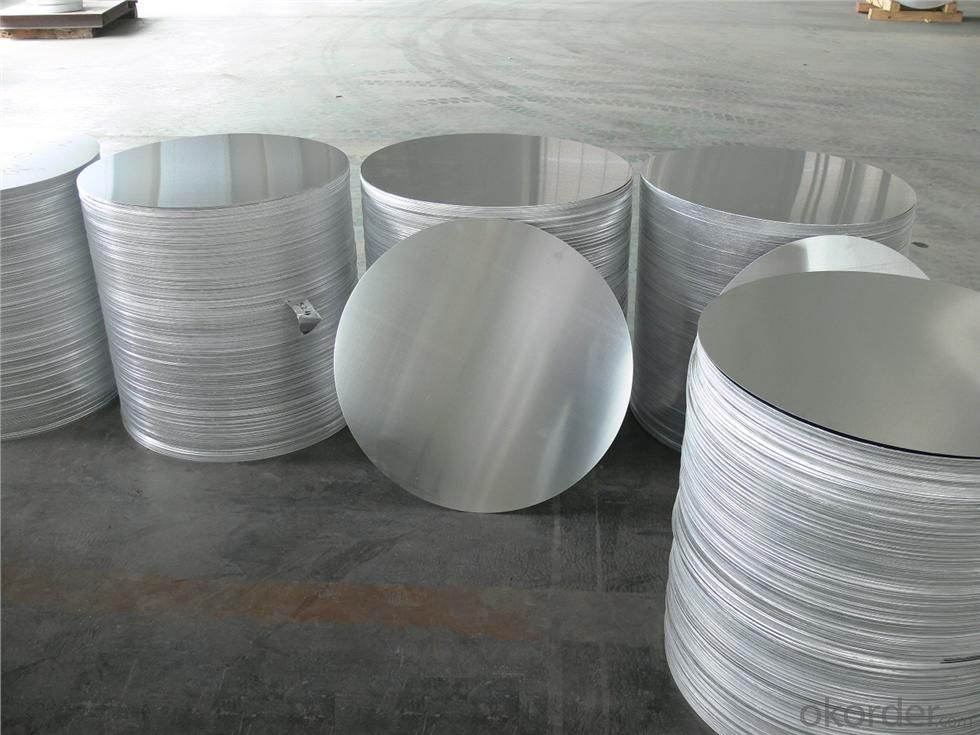
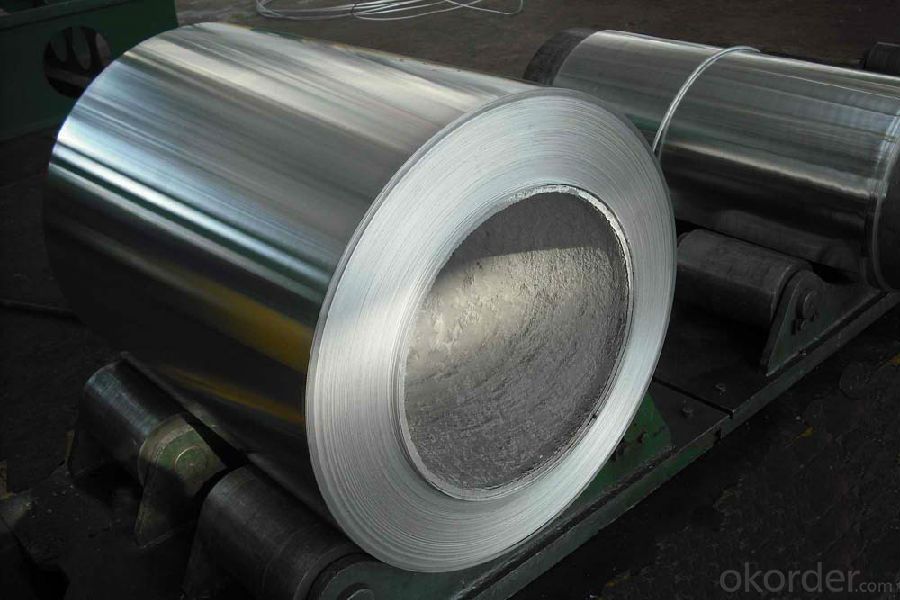
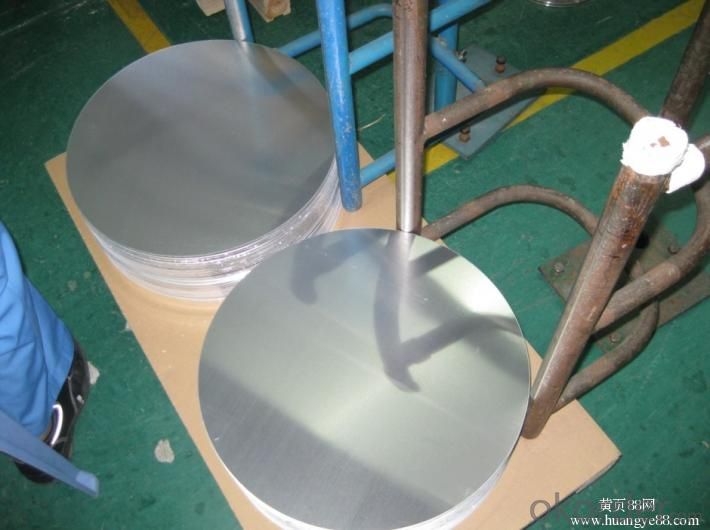
4. Product Specification
| Alloy | Temper | Thickness | Width | Weight |
| AA3003 | H14 | 0.2MM-3MM | 1000MM-1800MM | 2 TONS |
5.FAQ:
What is the quality standard?
---Usually our standard is GB3880-2006
What is the largest width?
---It is 2300mm
What is the MOQ?
---Usually we can accept 80 tons.
- Q: Can aluminum sheets be used for modular construction?
- Absolutely, modular construction can utilize aluminum sheets. Aluminum proves to be an adaptable and lightweight substance that presents numerous advantages for modular construction undertakings. Its resilience, resistance to corrosion, and impressive strength-to-weight ratio render it appropriate for a wide range of structural applications. The malleability of aluminum sheets permits them to be effortlessly fabricated and molded into various forms and dimensions, enabling flexibility in both design and construction. Furthermore, aluminum's recyclability positions it as an environmentally conscious selection for sustainable construction practices. All things considered, aluminum sheets stand as a feasible choice for modular construction given their robustness, durability, and versatility.
- Q: Is it possible to use aluminum sheets for constructing a sustainable building?
- <p>Yes, aluminum sheets can be used to create a sustainable building due to their recyclability, low thermal conductivity, and durability. Aluminum is a lightweight material that can reduce the energy consumption in transportation and construction. It also has a high recycled content ratio and can be easily recycled, which reduces waste. Additionally, aluminum's low thermal conductivity can contribute to energy efficiency in buildings by reducing heat transfer, thus lowering energy costs for heating and cooling. However, it's important to consider the entire life cycle of the material and ensure that the manufacturing and disposal processes align with sustainable practices.</p>
- Q: What are the advantages of using aluminum sheets in the packaging industry?
- There are several advantages of using aluminum sheets in the packaging industry. Firstly, aluminum is a lightweight material, which makes it easier to handle and transport. Secondly, aluminum is highly resistant to corrosion, ensuring the protection of the packaged products. Additionally, aluminum has excellent barrier properties, providing a strong barrier against light, moisture, and oxygen, thus extending the shelf life of the packaged goods. Moreover, aluminum is malleable, allowing for easy shaping and customization of packaging designs. Lastly, aluminum is recyclable, making it a sustainable choice for the packaging industry and contributing to environmental conservation efforts.
- Q: What are the different surface treatments for aluminum sheets to improve corrosion resistance?
- Some of the different surface treatments for aluminum sheets to improve corrosion resistance include anodizing, chromate conversion coating, powder coating, and painting.
- Q: Can aluminum sheets be laminated with other materials?
- Yes, aluminum sheets can be laminated with other materials. Lamination is a process where two or more layers of different materials are bonded together to create a composite material with enhanced properties. Aluminum sheets can be laminated with various materials such as plastics, fabrics, papers, or other metals using adhesive bonding or heat and pressure. This lamination process allows for the combination of the desirable characteristics of different materials, resulting in a final product with improved strength, durability, appearance, or specific functionality. Laminated aluminum sheets are commonly used in industries such as construction, automotive, aerospace, and packaging, where the combined properties of the laminated materials offer distinct advantages.
- Q: Are aluminum sheets suitable for soundproofing applications?
- Yes, aluminum sheets can be suitable for soundproofing applications. Aluminum has good sound-blocking properties and can help reduce noise transmission when used in soundproofing applications. It is a lightweight material that can be easily installed as barriers or panels to create a sound barrier between different areas or to isolate specific equipment or machinery. Additionally, aluminum sheets can be used in combination with other soundproofing materials, such as foam or rubber, to enhance their soundproofing capabilities. However, it is important to note that the thickness and density of the aluminum sheets will play a significant role in determining their effectiveness for soundproofing. Thicker and denser aluminum sheets will provide better sound insulation compared to thinner ones. Additionally, other factors such as the design, construction, and installation of the soundproofing system will also impact its overall effectiveness in reducing noise.
- Q: Is it suitable to use aluminum sheets in outdoor settings where they will be subjected to weather conditions?
- <p>Yes, aluminum sheets can be used for outdoor applications, even when exposed to weathering. Aluminum is a durable and corrosion-resistant material, which makes it suitable for outdoor use. It does not rust like iron or steel and can withstand various weather conditions. However, it's important to use aluminum alloys specifically designed for outdoor use, and to apply protective coatings or finishes to enhance its resistance to weathering and extend its lifespan.</p>
- Q: How to clean the aluminium oxide on the surface of aluminum? What kind of materials should we use to clean the thin aluminum sheet, and what's the concentration?
- You can sprinkle the mix of Alkaline water,vinegar,washing powder and liquid detergent on the surface. And after a period of time, rub it with soft silk, after it being dry,sprinkle again and rub until it's clean.
- Q: Explain the distinctions between aluminum and steel sheets in terms of their properties and applications.
- <p>Aluminum sheets and steel sheets differ in material composition, weight, strength, and applications. Aluminum sheets are lightweight, corrosion-resistant, and have good thermal conductivity, making them ideal for applications requiring light weight and resistance to corrosion. Steel sheets, on the other hand, are heavier, stronger, and more durable, suitable for structural applications where high strength is required. Steel is also magnetic, which aluminum is not, and has a higher melting point. However, steel is more prone to rust compared to aluminum, which requires protective coatings or treatments in many applications.</p>
- Q: Are aluminum sheets suitable for HVAC applications?
- Yes, aluminum sheets are suitable for HVAC (Heating, Ventilation, and Air Conditioning) applications. Aluminum is a popular material choice for HVAC systems due to its various beneficial properties. Firstly, aluminum is lightweight, which makes it easier to handle and install in HVAC systems. This is particularly important for large systems that require a significant amount of material. Secondly, aluminum is highly resistant to corrosion, making it ideal for use in HVAC applications where exposure to moisture and condensation is common. This resistance to corrosion ensures the longevity and durability of the HVAC system, reducing maintenance and replacement costs in the long run. Additionally, aluminum has excellent thermal conductivity, allowing it to efficiently transfer heat or cold air throughout the HVAC system. This property helps to ensure efficient heating and cooling, reducing energy consumption and resulting in cost savings for the user. Furthermore, aluminum sheets can be easily formed and shaped to fit specific HVAC requirements, allowing for customized designs and precise installation. This versatility makes aluminum a preferred choice for ductwork, heat exchangers, and other components in HVAC systems. Overall, aluminum sheets are well-suited for HVAC applications due to their lightweight, corrosion resistance, thermal conductivity, and flexibility. These properties contribute to the efficiency, durability, and performance of HVAC systems, making aluminum a preferred material in the industry.
Send your message to us
Light Gauge Aluminum Sheets for Cookware - Continuous Casting Aluminum Coils Oklahoma
- Loading Port:
- Shanghai
- Payment Terms:
- TT OR LC
- Min Order Qty:
- 5 m.t.
- Supply Capability:
- 50000 m.t./month
OKorder Service Pledge
OKorder Financial Service
Similar products
Hot products
Hot Searches
Related keywords
